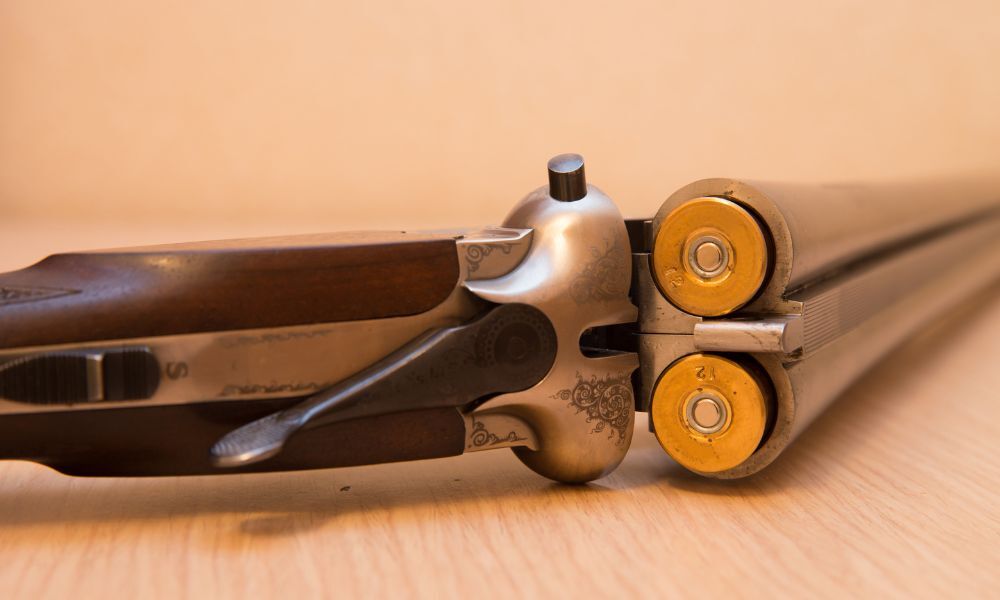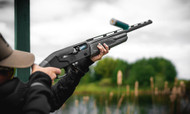Demystifying Firearms: The Difference Between Gauges and Shotguns
Posted by Arms Protection on Sep 12th 2025
When you're new to the world of firearms, the terminology can be a bit overwhelming. You hear words like "shotgun," "gauge," "caliber," and "bore," and it's easy to get them all mixed up. One of the most common points of confusion is the relationship between "shotgun" and "gauge." Are they the same thing? Is one a type of the other? The short answer is no, they are not the same thing, but they are intrinsically linked.
This article will help you understand the fundamental difference and how they relate to each other.
What is a Shotgun?
Let's start with the basics. A shotgun is a type of firearm that is typically designed to be fired from the shoulder. Unlike rifles, which fire a single projectile (bullet), shotguns fire multiple small pellets (shot) or a single large projectile (slug). This makes them incredibly versatile for a variety of applications, including hunting birds and small game, sport shooting like skeet and trap, and even home defense.
The key characteristic of a shotgun is its smoothbore barrel. This means the inside of the barrel is smooth, without the spiraling grooves (rifling) that you find in a rifle. This smooth barrel allows the shot to spread out after leaving the muzzle, creating a pattern that increases the chance of hitting a moving target.
What is a Gauge?
Now, let's talk about "gauge." Gauge is a unit of measurement that refers to the bore diameter of a shotgun's barrel. It's a bit of a historical and somewhat counterintuitive system, but it's crucial to understanding shotgun sizes. The gauge is determined by the number of lead balls of a specific diameter that weigh one pound.
For example, a 12-gauge shotgun has a bore diameter equal to the diameter of a sphere of lead that weighs 1/12 of a pound. A 20-gauge shotgun has a bore diameter equal to the diameter of a sphere of lead that weighs 1/20 of a pound.
This means that the smaller the number, the larger the bore diameter. So, a 10-gauge shotgun has a larger bore than a 12-gauge, and a 12-gauge has a larger bore than a 20-gauge. This is a common point of confusion for newcomers, as it's the opposite of what you might expect.

The Connection: Gauge Defines the Shotgun
So, what's the connection? Gauge is a defining characteristic of a shotgun, but it is not a shotgun itself. Think of it this way:
- Shotgun is the type of firearm.
- Gauge is the size of that firearm's bore.
You can't have a "gauge" without a shotgun. The gauge tells you what kind of ammunition that shotgun will fire. For instance, a 12-gauge shotgun can only fire 12-gauge ammunition, and a 20-gauge shotgun can only fire 20-gauge ammunition.
Common Shotgun Gauges
While there are many different gauges, some are far more common than others.
The 12-Gauge
This is, by far, the most popular and versatile shotgun gauge in the world. It offers a great balance of power, recoil, and ammunition availability. The 12-gauge is suitable for a wide range of applications, from hunting large game like deer and turkey to home defense and sport shooting.
The 20-Gauge
The 20-gauge is a fantastic alternative to the 12-gauge, especially for those who are more sensitive to recoil. It's lighter, often used by smaller-framed shooters, and is an excellent choice for hunting smaller game and birds. It's also a popular choice for youth shooters starting out.
The .410 Bore
This is a bit of an outlier. The .410 is technically not a gauge in the same historical sense. It is a "bore" measurement, referring to the actual diameter of the barrel in inches (.410 inches). The .410 is the smallest and lightest of the common shotgun sizes, making it a great choice for beginners, youth, and for hunting very small game.
Conclusion
In simple terms, a shotgun is the firearm, and its gauge is a measurement of its bore size. Understanding this relationship is the first step to becoming a more informed and confident firearms owner. When you're considering a shotgun for your specific needs, the gauge is one of the most important factors to consider, as it will determine the shotgun's power, recoil, and what it's best suited for.

